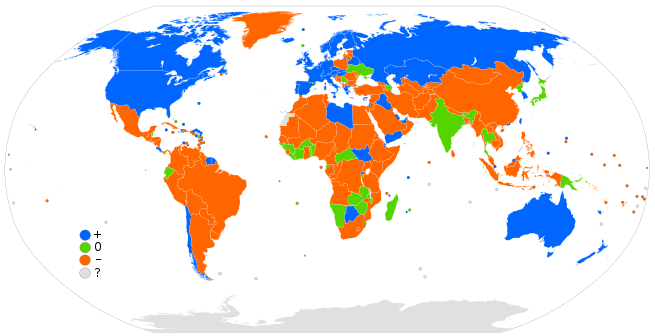
Main Difference
The main difference between Immigration and Emigration is that the Immigration is a movement of people into another country or region to which they are not native and Emigration is a act of leaving one’s country or region with the intent to settle permanently or temporarily in another
-
Immigration
Immigration is the international movement of people to a destination country of which they are not natives or where they do not possess citizenship in order to settle or reside there, especially as permanent residents or naturalized citizens, or to take up employment as a migrant worker or temporarily as a foreign worker.As for economic effects, research suggests that migration is beneficial both to the receiving and sending countries. Research, with few exceptions, finds that immigration on average has positive economic effects on the native population, but is mixed as to whether low-skilled immigration adversely affects low-skilled natives. Studies show that the elimination of barriers to migration would have profound effects on world GDP, with estimates of gains ranging between 67 and 147 percent. Development economists argue that reducing barriers to labor mobility between developing countries and developed countries would be one of the most efficient tools of poverty reduction.The academic literature provides mixed findings for the relationship between immigration and crime worldwide, but finds for the United States that immigration either has no impact on the crime rate or that it reduces the crime rate. Research shows that country of origin matters for speed and depth of immigrant assimilation, but that there is considerable assimilation overall for both first- and second-generation immigrants.Research has found extensive evidence of discrimination against foreign born and minority populations in criminal justice, business, the economy, housing, health care, media, and politics in the United States and Europe.
-
Emigration
Emigration is the act of leaving a resident country or place of residence with the intent to settle elsewhere (to permanently leave a country). Conversely, immigration describes the movement of people into one country from another (to permanently move to a country). Hence one might emigrate from one’s native country to immigrate to another country. Both are acts of migration across national or other geographical boundaries.
Demographers examine push and pull factors for people to be pushed out of one place and attracted to another. There can be a desire to escape negative circumstances such as shortages of land or jobs, or unfair treatment. People can be pulled to the opportunities available elsewhere. Fleeing from oppressive conditions, being a refugee and seeking asylum to get refugee status in a foreign country, may lead to permanent emigration.
Forced displacement refers to groups that are forced to abandon their native country, such as by enforced population transfer or the threat of ethnic cleansing.
-
Immigration (noun)
The act of immigrating; the passing or coming into a country of which one is not native born for the purpose of permanent residence.
-
Emigration (noun)
The act of emigrating; movement of a person or persons out of a country or national region, for the purpose of permanent relocation of residence.
-
Emigration (noun)
A body of emigrants; emigrants collectively
“the Irish emigration”
